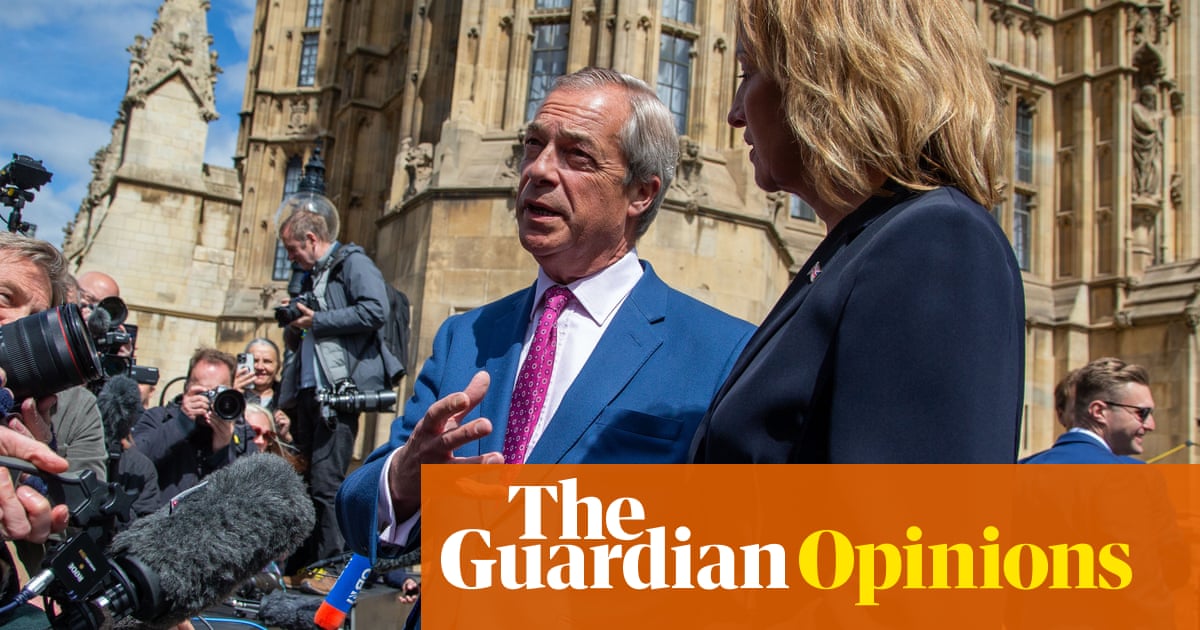TheRuncorn and Helsby byelectionbelongs in the rubbish bin of politics. British byelections are charades, mock polls, playtime for pundits. They reduce normally sensible analysts to hysterics. That most pragmatic of prime ministers, Harold Wilson, refused point blank to comment on them.
Yes, Reform’s Nigel Farage had a field day. He is the latest jester to be cast as “Britain’s next prime minister”. For the past week, his party has celebrated winning Runcorn by six votes, with 39% of roughly half of the eligible electors who bothered to vote. He also wontwo of the sixnew regional mayoralties, and may control some10 local councils. The media went berserk. The BBC gave Reform a total of 31%vote sharein the local elections, making it the largest party. Tories were at “a new low” and Labour a mere ghost of a party.
To the election guru John Curtice,Farage and Reform now“breach the barrier hitherto presented by first past the post”. He had finally challenged the British constitution and jeopardised Kemi Badenoch’s Tory leadership. The BBC declared that were a general election held now, Keir Starmer’s Labourwould be down to 20%, as if his sensational victory last year were some forgettable mistake.
We should first recall that Reform’s predecessor, Ukip, enjoyed similar projections after performing equally well in local and European elections from 2014 to 2019. At the high point of Brexit, it also smashed records and was said to have demolished the two-party system. Yet Reform, Ukip in all but name, gained just14% of the votesat last year’s general election, marginally ahead of theLiberal Democrats’ 12%. People may have wanted Brexit in the past, but they did not want the party of Brexit in power in Downing Street.
There is nothing new in Reform UK. History’s most sensational third-party byelection was in 1962, when theLiberals won Orpington. Their candidate slaughtered the governing Tories with 53% of the vote, way ahead of today’s Reform. The Liberals’ poll rating went from 6% to 26% almost overnight, and the press loved it. With one voice it declared the end of two-party politics. So-called Orpington man was born, and Liberals won or almost won five successive byelections. The Tory government, a decade in power and moribund, was pronounced dead and the Liberal leader,Jo Grimond, was tipped as prime minister.
Twenty years later, in 1981, it was Labour that was moribund under Michael Foot. TheSocial Democratic party(SDP) surged into the lead, and its candidate Shirley Williams won the Crosby byelection withabout50% of the vote, ahead of Reform today. The next year, Roy Jenkinswon Glasgow Hillheadwith 33%. Betting was heavily on Jenkins as the next prime minister. Yet by 1987, theSDP had allied with the Liberalsand togetherthey fell back to 24%. What the alliance did do was split the left,savaging Neil Kinnock’s Labourand keeping the Tories in power for another decade.
Farage’sfive MPs last yearmay have been a grim comment on the UK’s first-past-the-post democracy, but Reform was well behind the nationalists in Scotland and Wales, and only a little ahead of the Lib Dems. The blunt reality is that byelections, like local council ones, are mere irrelevant snap popularity polls on national party leaders, given Britain’s centralised politics. Turnouts are roughly half those at general elections, while “swings” against ruling parties tend to double. They are just that – comments – and probably from the respective parties’ more active extremes. Hence the current fixation on immigration. Parliamentary elections are wholly different. They are the public’s formal choice of whom it wants as prime minister.
At last year’s general election, Reform did to the Tories what the Liberals have so often done to Labour: divided a party’s natural supporters into rival loyalties. Thus Reform let Labour amass its second-greatest ever number of MPs despite the party winning just 34% of the poll. Labour never “won” the 2024 election. The election was lost by the38% of votersdivided between Tory and Reform. A more truthful voting system would have delivered a Tory-Reform coalition.
Of course, there are caveats. Reform appear to be mopping up votes from left as well as right. But the same applied to many Liberal surges in the past. The centre has always been soggy, but first past the post is an iron taskmaster. Farage would need a massive and persistent support base and show himself its competent leader – more than was ever achieved in the past by the Liberals or the SDP.
Wonders rarely happen in British politics, and not much wonderful happened last week. If I was Farage, I would gather my small band of MPs and apply for the Tory whip. Capture the party from within. But if I was Starmer, I would be exceptionally nice to both Farage and Badenoch. Long may they wage their war for the soul of Toryism. That rivalry is pure gold.
Simon Jenkins is a Guardian columnist
